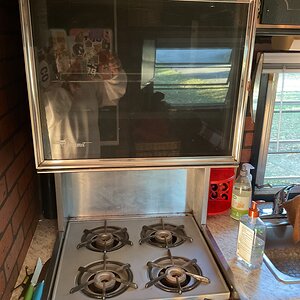"EZ"
Internet Forum Junkie since there was dial up!
- Joined
- Sep 21, 2020
- Messages
- 2,163
- Location
- Ringgold, GA.
- RV Year
- 2006
- RV Make
- Holiday Rambler
- RV Model
- Ambassador
- RV Length
- 40'
- TOW/TOAD
- 2019 Jeep Grand Cherokee
If I changed the oil before I parked the RV for a few months I would not change it again when you get ready to use it. The oil is still brand new. Any condensation that may accumulate in the crank case is very minor and will dissipate pretty quickly as you get to operating temps. There are a LOT more things to worry about than condensation in your engine. ? 












